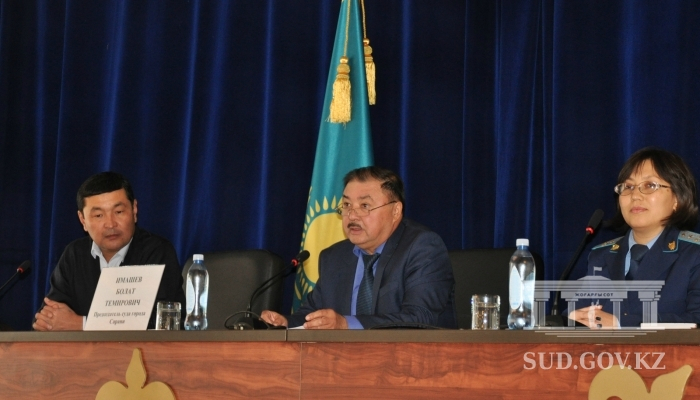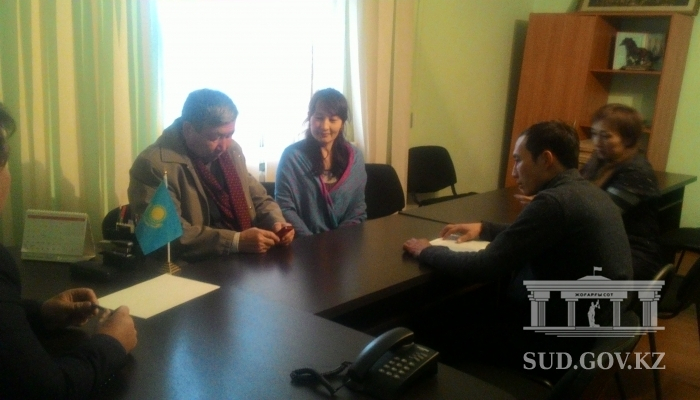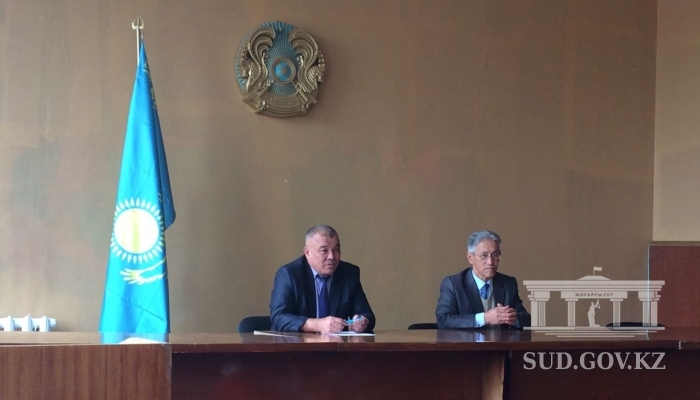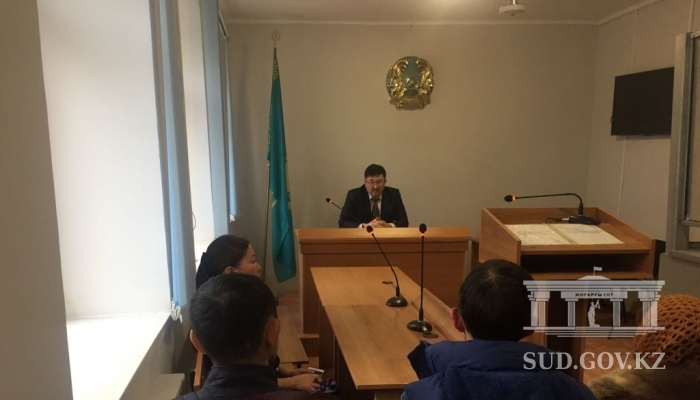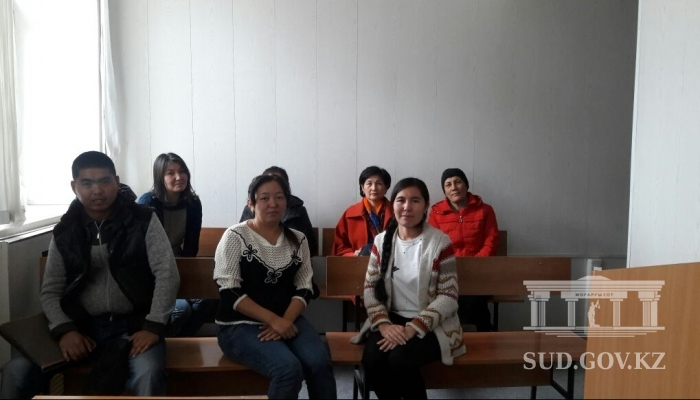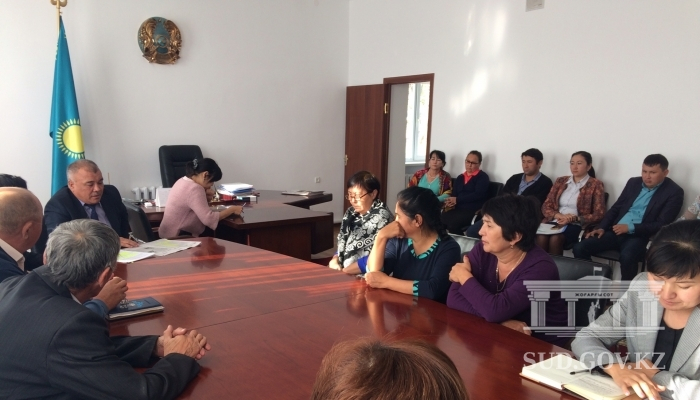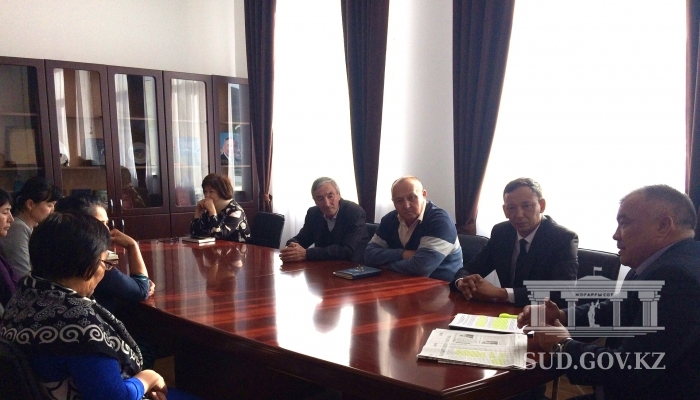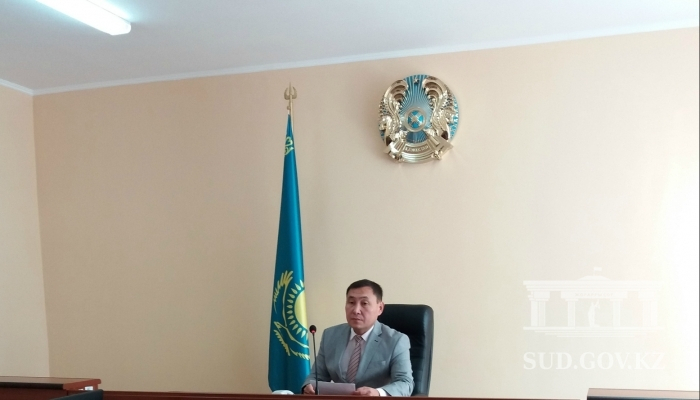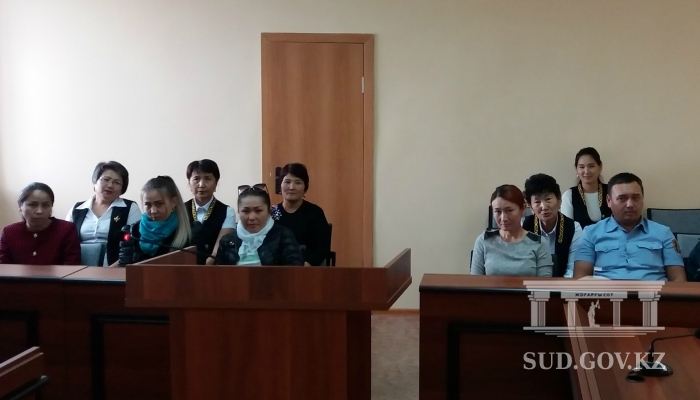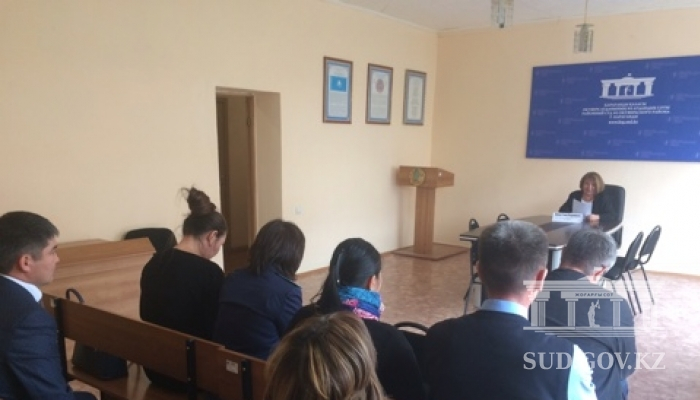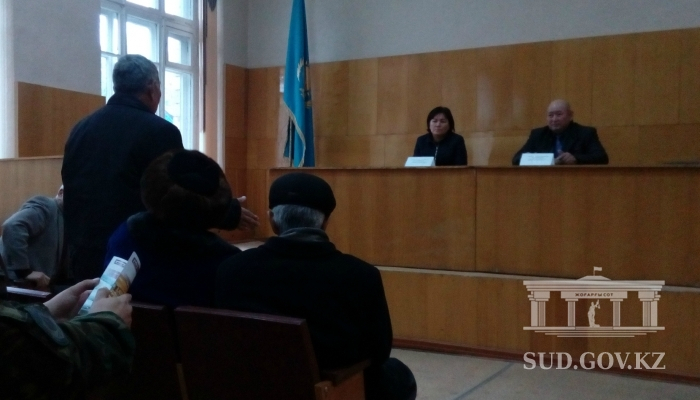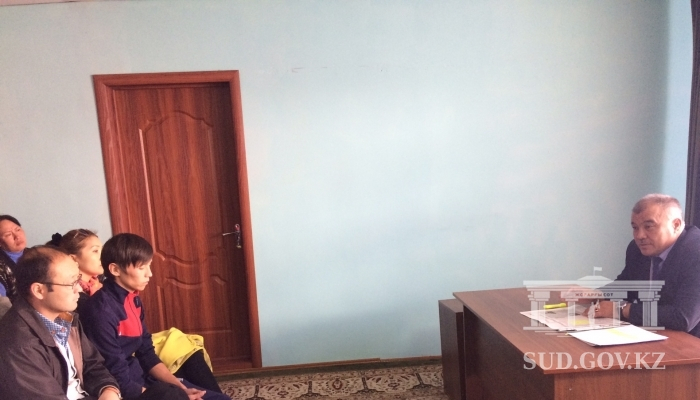Tue, 10/10/2017 - 16:39
The chairmen of all 35 regional and equivalent courts of the region held a number of meetings with the population in order to explain the main direction of the criminal process reform.
For example, the chairmen of the Bukhar-Zhyrau District Court Rafaiyl Durdyev, the SICC Sharip Sissimbayev, the Ulytau District Court Sarsen Sagatov, the Saransk City Court Bolat Imashev, the District Court No. 2 of the Oktyabrskiy District Beybit Alibekov, the District Court No. 2 of the Karkaraly District Kenzhebai Iskakbayev and the District Court No. 3 of the Oktyabrskiy district Oral Omarov met with the residents of the Sheshenkara citizens, the district of Kazybek bi of Karagandy, the Ulytau, Aktas, Sortirovka, Yegindybulak and Prishakhtinsk districts.
At the meetings the chairmen of the courts informed about the work being carried out in the republic to improve the judicial system and simplify the citizens' access to justice. It was noted that an interdepartmental working group has developed the main approaches to optimize the criminal process and improvement of law enforcement activities in order to implement the Plan of the Nation. The key issue of the reform is the expansion of the procedural powers of the criminal investigative bodies, the prosecutor's office and the court. The reform is aimed at developing mechanisms for protecting the constitutional human rights and freedoms and creating an optimal model for judicial proceedings.
The chairmen of the courts described the provision of legal assistance to socially vulnerable social group, the application of the pre-trial probation procedure in criminal cases and accelerated pre-trial proceedings in order to improve the efficiency of the investigation and the expeditious administration of justice. It was also noted that the project presupposes the reduction, the transfer to courts of authorization of procedural actions including secret investigative actions in the period of detention of a person without authorization. It was said about increasing the adversarial process by giving equal rights to accusations and protection in getting and exchanging information including evidence and access to the materials of the criminal case, and applying, with certain grounds, an order of execution for criminal infractions and crimes of minor gravity.
The citizens were able to ask questions and get qualified answers at the meetings.

